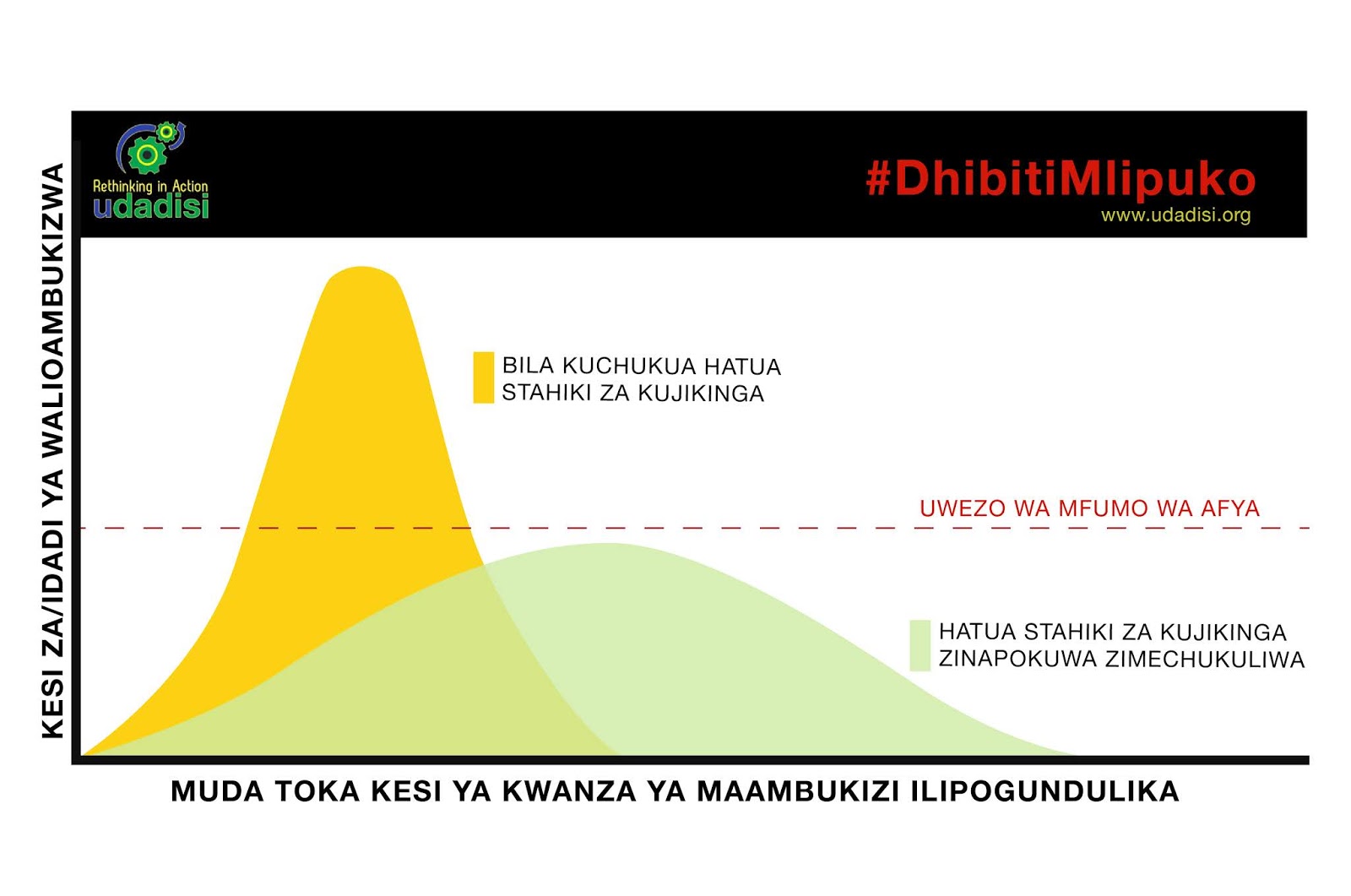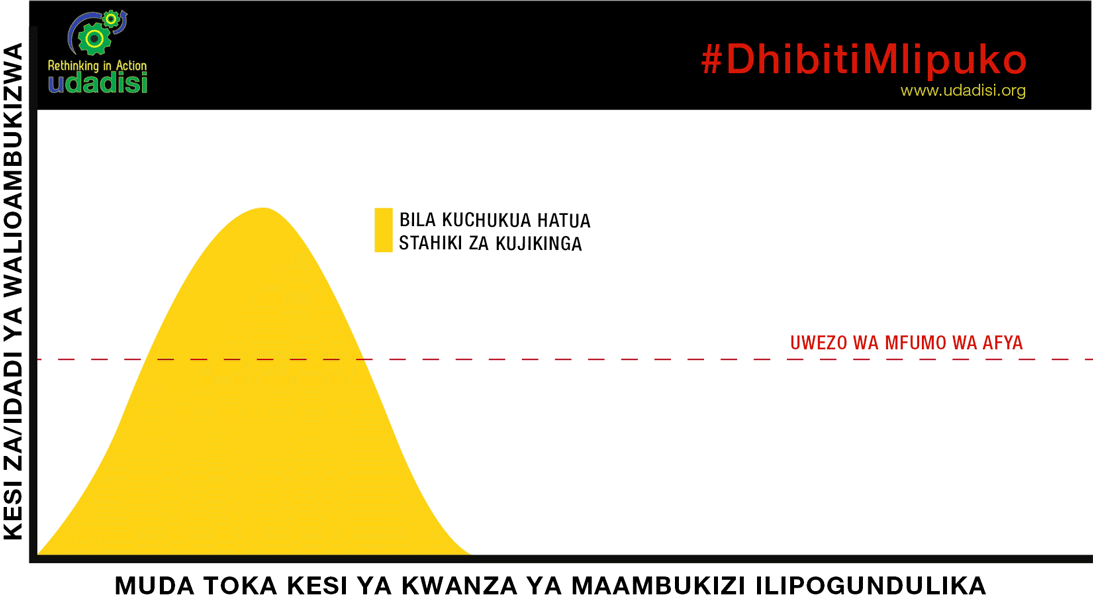By Ronald B. Ndesanjo
Coronavirus Disease 2019 (COVID-19) is indeed the worst global crisis we have witnessed so far in this millennium. By April 14, the World Health Organisation (WHO) had registered 1,878, 489 confirmed cases and 119, 044 deaths globally. In my home country of Tanzania, the numbers stand at 53 confirmed cases, 11 recoveries, and 3 deaths. There is a very high probability that these stats have changed as you read this piece.
The crisis has brought, with it, other adversaries, ranging from human rights abuse in the form of gender-based violence, police brutality while enforcing lockdowns and curfews, as well as lost jobs and businesses. Did I mention that even mental illnesses, like cabin fever, stress, and depression are part of the problem? But how did we get here?
A ‘stubborn’ Doctor in China
Sometime in January, news started pouring across mainstream media, Al-Jazeera in my case, of a medical doctor in China who ‘leaked’ information about a possible flu virus outbreak. He likened it to that of 2009, the H1N1 Swine Flu. It was later to be learnt that Chinese authorities reprimanded the doctor for spreading malicious news. The doctor’s name was Li Wenliang. He’d sadly die of the same disease he was trying to warn people about.
The Chinese played the game that most governments love to play in such situations: state censorship. But, unlike the US, the Chinese quickly retreated from that and sprang into action. Dr. Li became a hero, albeit posthumously. What happened thereafter is history still unfolding.
The World is caught off-guard
As I was trying to wrap my mind around what was happening, social media was flooded with images of a special hospital for COVID-19 patients that had been built in about a week or so. But it was no longer China alone in this, the virus had already crossed borders. Coronavirus is so fast. Speed is one of its unique features. Sometimes I am just baffled by people who think they can contain the disease by just playing catch-up with the virus and ignore other measures like mass testing, several forms of isolation, and movement restrictions. We have a name for that, negligence!
On February 2, the first case outside China was reported in the Philippines, this being only two days after the WHO declared the outbreak a global emergency. When it issues such declarations, you know this is a critical global health issue. Then it was about time for the whole of the Eurasia region to sneeze. If you’d asked me what we were doing here at home, I’d tell you getting along with our daily routines. For us Catholics, we were about to enter the Lent season. Our mood was prayer and repentance, COVID-19 could wait. After all, if God is for us, who can be against us?
Africans can’t contract COVID-19?
It was Italy and Spain that got most people’s attention, especially in my home country. The reality was slowly sinking into our minds that it could be a matter of days before the virus hits us. It was around the same time when denial and indecisiveness were not an option, at least in countries where cases had been confirmed. Some European countries, like Denmark, France, and Germany, swiftly opted for lockdown, massive testing, and a range of other measures to protect their people from the pandemic.
I have no idea where it came from, but for Satan-knows-what reasons, some people in my home country superstitiously began to regard coronavirus as a disease of white (or is it light-skinned?) people. There were even video clips going around showing people ridiculing COVID-19 as nothing when compared to diseases they battle with daily, like malaria, dengue, HIV/AIDS, and Ebola. It was clear to some, right then, that, as a nation, we had missed a golden opportunity for deploying all our armoury to contain the virus.
Knock, knock, who’s there?
On March 16, the first case was reported in Tanzania’s northern city of Arusha. A-Town, as locals fondly call it, is arguably our gateway to the world since it serves as the country’s tourism hub. However, our first case was not a tourist, but a Tanzanian woman who had returned from Belgium. Alas! So, dark-skinned people can truly contract COVID-19. Is this some kind of a joke or what, some might have reacted. But when images of government people quarantining a hotel the woman had stayed upon her return appeared on TV and social media, that was it. We have it. It was no longer them fighting the disease, it was now us fighting for our survival. Yes, survival, because if this novel corona virus breaks loose, it may put a dent on our demographic map.
I had thought then, and I still think now, that this was another moment we’d jump into drastic action: sealing the city and allowing only crucial or emergency entry and exit, introducing mandatory testing and quarantine for all people entering the country in all our border posts and airports. That’s how you beat the virus, by standing in its way. But the mood was let’s play catch up for a while. Is indecisiveness fitting here?
Holy water and magic soap
Tanzania is not alone in this mess. Our East African neighbours are hit as well, some it seems even worse than us. We have been observing from afar our neighbours’ drastic moves by their respective governments to deploy several measures to contain COVID-19. Take Kenya, for example. Just after a few first cases were confirmed, President Uhuru Kenyatta addressed the nation and announced stringent measures to help contain the virus. He directed that only citizens and visitors who were willing to go to self-quarantine or government facilities should be allowed into the country, closure of all educational institutions, and minimizing or shutting down all activities that cause congestion as well as mass testing.
Uganda is no exception, almost the same strict measures were deployed there. As I write, President Yoweri Museveni has just extended their lockdown to May 5. What our Rwandan counterpart have done seems phenomenal. Did you know Rwanda was the first sub-Saharan African country to impose a total shutdown? As if that was not enough, President Paul Kagame personally supervised the distribution of essential food items to at least 20,000 households in the country’s capital of Kigali. We have a name for that too, leadership!
I think any economist would agree with me that most of these stringiest measures can really ‘hurt’ a nation’s economy. My wild guess is, it was smart of Tanzania not to go that way to keep our economy afloat. Or is there another rationale for our course of action?
Business would continue unusual. We’d wash our hands with running water and soap, keep them disinfected with alcohol-based hand rubs. I have never seen Tanzanians wash hands so frequently. Some of our universities have even started producing sanitizers. Epidemiologists claim that mass testing and isolation measures are the secret to flattening the curve. But I can bet a few thousand shillings that we can prove them wrong by just mass hand washing, keeping our distance and, of course, trusting that God will never abandon us. Or is there another way we can beat the virus?
And the curve shall never peak?
Four weeks after the first case was reported in Tanzania, we witnessed, for the first time, a situation in which 14 new confirmed cases were announced on one particular day – a double digit as some say. Just a few days earlier, the Minister responsible for health warned, while addressing religious leaders, that if the public is not educated on how to take precautions, Tanzania will soon enter into a community/local transmission phase. I am not an epidemiologist myself, but this warning sounded like ‘playtime’ is over, the worst could happen.
I hope the Minister’s audience got the message. I am very optimistic we will not get to that desperate point, in which the curve shall never seem to peak. Surely, even God up there will not let ‘His’ children whom ‘He’ loves so dearly succumb to the evil virus. We will keep on washing and worshipping, and it shall all be well with us! Amen.









